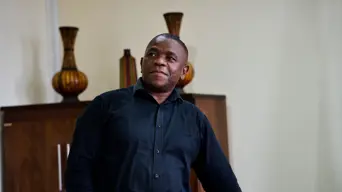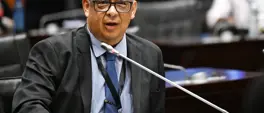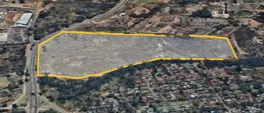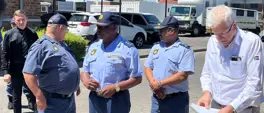Expert says SAPS inquiry team has prima facie evidence as starting point
Lauren Isaacs
14 July 2025 | 7:59Independent crime and policing analyst, Johan Burger said while another commission was disappointing, this one has something to follow through on allegations made by Mkhwanazi.

KwaZulu-Natal Police Commissioner Nhlanhla Mkhwanazi in his office at the provincial operations building in Durban. Picture: Katlego Jiyane/EWN
CAPE TOWN - Reactions continue to stream in, following the announcement that a Judicial Commission of Inquiry has been appointed to probe wide-ranging allegations of political interference, collusion and infiltration in the South African Police Service (SAPS).
President Cyril Ramaphosa addressed the nation on Sunday night, exactly a week after KwaZulu-Natal (KZN) Police Commissioner, Nhlanhla Mkhwanazi, made explosive claims during a media briefing.
Ramaphosa has placed Police Minister Senzo Mchunu on special leave, with Wits University law professor, Firoz Cachalia, set to act in Mchunu's position from next month.
Independent crime and policing analyst, Johan Burger, said, "I think for many, a little disappointing that we have another commission of inquiry, but at the same time, at least, we have something now that can follow through on the allegations by General Mkhwanazi."
The judicial inquiry will be chaired by acting deputy chief justice, Mbuyiseli Madlanga, who will be assisted by Advocates Sesi Baloyi and Sandile Khumalo, in making findings and recommendations.
"The president's announcement seemed to be a little incoherent at times, but the commission is, I think, authorised at least to start with the existing prima facie evidence which General Mkhwanazi referred to, so that's the encouraging thing, is that they will look at the prima facie evidence that exists and that I think would include the 121 case dockets that were sent to the office of General [Shadrack] Sibiya," added Burger.
ALSO READ: Ramaphosa: SAPS inquiry established to affirm SA's commitment to the rule of law
Get the whole picture 💡
Take a look at the topic timeline for all related articles.













